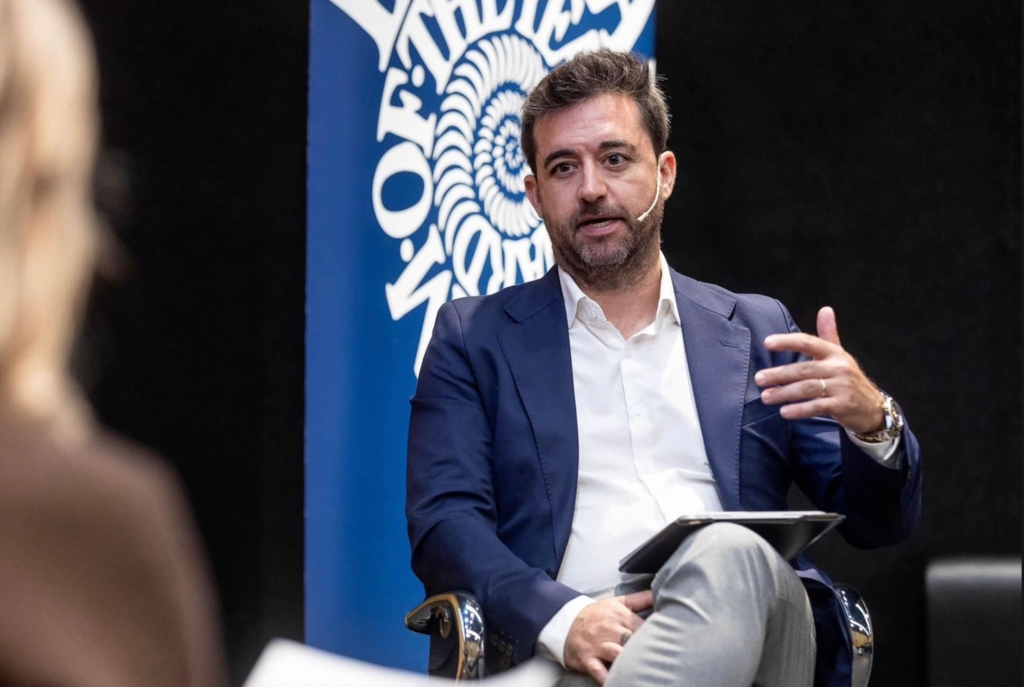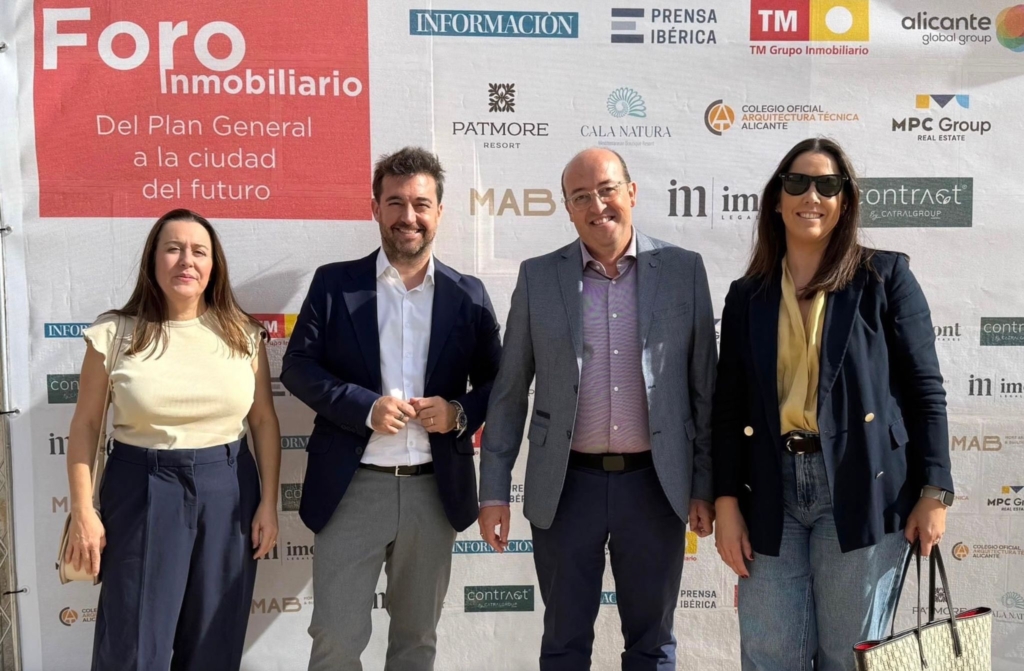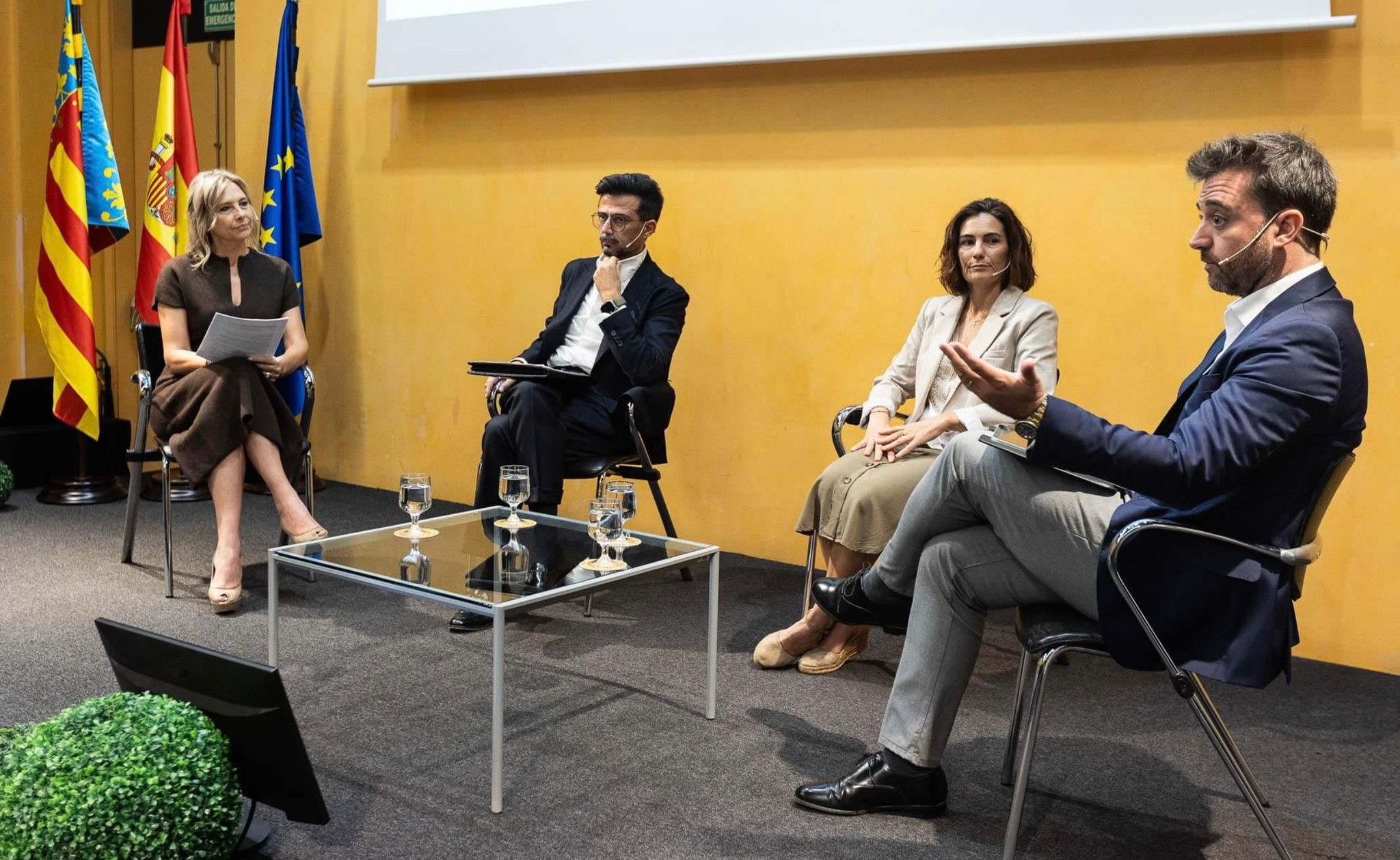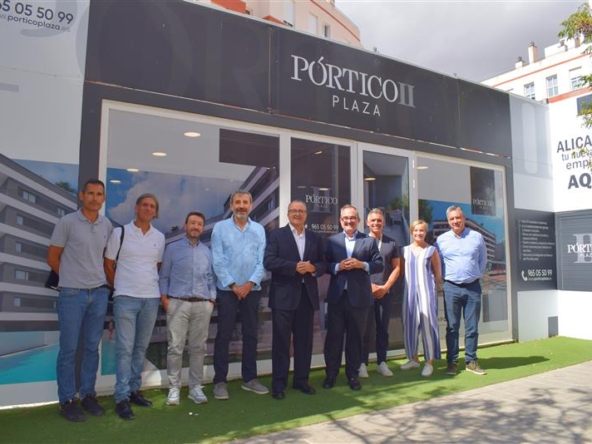The newspaper Información organized a Real Estate Forum in which various professionals analyzed Alicante’s urban development future in the context of the new General Plan. The event aimed to understand how this planning tool will affect the development of the provincial capital, with particular attention to the residential sector and the challenges it poses for the coming years.
Following a welcome from the newspaper’s editor, Toni Cabot, urban planning lawyer Rafael Ballester, with extensive experience in territorial planning, gave a presentation on Alicante’s new General Plan, currently undergoing renewal more than three decades after its initial approval in 1987.
This was followed by a roundtable discussion entitled “The New Real Estate Horizon,” in which MPC Group participated with its sales and marketing director, Adrián Barbudo, along with Miguel Ángel Quiles, director of the client division of TM Grupo Inmobiliario, and Ana Martínez, secretary of the Official College of Technical Architecture of Alicante. The panel was moderated by journalist Victoria Ferrá.

Foreign Investment
The panel began with a question about the influence of the new General Urban Development Plan (PGOU) on attracting foreign investment or new buyer profiles. In this case, the commercial director of MPC Group explained that “Alicante has a unique opportunity to position itself as a leading Mediterranean city in which to live, invest, or work remotely.” The official emphasized that “this leap forward will only be possible if the new General Plan is accompanied by a real transformation that includes administrative agility, urban planning flexibility, and a modern vision of the territory, which considers not only the capital but also the metropolitan area and the Alicante-Elche axis as the economic engine of the province.”
Barbudo emphasized that the buyer profile is changing, and that digital connectivity, quality of life, and the availability of modern services have become key factors in attracting talent and new ways of living. He also focused on the potential of health tourism, which is increasingly important in the city. “Alicante has a consolidated healthcare ecosystem that attracts thousands of international patients each year, generating a demand for quality temporary accommodation that, in many cases, ultimately leads to home purchases,” he noted.
Housing Models
The panel also addressed the type of housing or urban planning model the market demands today and how this reality can be aligned with the provisions of the new General Plan. For Adrián Barbudo, the first thing is to accept that “the 15-minute city model works, but it must be accompanied by a residential product that can actually be purchased or rented.” He emphasized that the market has changed and that the real challenge is no longer just planning well, but ensuring access to housing for all profiles.
He proposed three clear lines of action: more affordable housing adapted to new types of households, such as single-person homes or couples without children, with compact designs, common areas, and affordable costs; formulas to facilitate purchase, with longer mortgages, public aid, tax incentives, and hybrid construction models; And finally, the promotion of stable rentals with greater legal security. “At MPC, we’re already implementing all of this,” he stated, citing developments such as Pórtico Plaza and Q10, where European and Spanish residents coexist, working remotely and valuing Alicante as a smart city with quality of life and modern services.

Sustainability, Digitalization, and Industrialization
Another focus of the forum was the role of sustainability, digitalization, and new construction materials in urban transformation. Adrián Barbudo explained that never before has the sector experienced such a profound technological and social transformation as the current one, and that this reality demands a clear response from planning. “Smart City should not just be an aspirational concept, but a real cornerstone of the new General Plan, which includes technology, sustainability, improved services, and efficient governance,” he noted.
Regarding sustainability, he advocated a viable approach with social impact, noting that only 7% of the housing stock in Spain has an A or B energy rating, and that 55% of European buyers would be willing to pay a little more for an energy-efficient home if the additional cost does not exceed 5-8%. Regarding digitalization, he emphasized that artificial intelligence is already transforming key processes in the sector, from customer acquisition to the design and energy management of buildings, and called for a General Plan that includes technological infrastructure, flexible uses, and a digitalized administration.
City Model
The final intervention focused on the city model proposed by the new General Urban Development Plan (PGOU). Adrián Barbudo insisted that this approach must be translated into a realistic, accessible, and demand-aligned real estate product. He explained that single-person and two-person homes already far outnumber larger ones, and that 70% of reservations for developments such as Nature Views or Pórtico Plaza correspond to two-bedroom homes.
He also focused on the need for infrastructure that accompanies the compact city model: more public transportation, better connectivity between neighborhoods, and the promotion of e-mobility. Added to this are community services, green areas, healthy environments, and high-quality digital connectivity. He emphasized the importance of promoting new models such as rent-to-own, coliving, and cohousing, and highlighted that more than 50% of real estate transactions in the province are already carried out by international buyers. “The new General Urban Development Plan (PGOU) must be a flexible framework that allows for the regeneration of urban fabric and the diversification of uses, if we want to remain competitive compared to other cities that are already adapting their models to demographic and technological change,” he concluded.
The broadcast of the forum can be seen in the following video. The roundtable, in which MPC Group participated, starts in 1 hour and 16 minutes (in Spanish).












